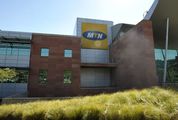Source:

BUSINESS DAY TV : Sven Richter and Martyn Davies discuss MTN’s Nigeria fine
by Transcript service,
2015-10-30 10:10:10.0
Sven Richter from RenAsset Management and Martyn Davies from Deloitte discuss Nigeria’s regulatory crackdown on South African companies and the resultant economic and political fallout.
BUSINESS DAY TV: Nigeria has slapped MTN with a hefty $5.2bn fine for timing issues in disconnecting subscribers. This has raised questions around whether Nigeria has been too heavy-handed in meting out this punishment. It has also called into question the kind of relationship that has developed between Nigerian and South African businesses. Joining us on News Leader to discuss this are Martyn Davies, MD of emerging markets in Africa at Deloitte, and Sven Richter, head of frontier markets at RenAsset Management.
Sven, if I may start with you because the focus has been on MTN and the effect on its share price. The debates in your office, have they been around whether this is a justifiable fine, or whether it’s too heavy handed by Nigeria’s government regulators, and MTN has to work hard to try and reduce it.
SVEN RICHTER: The debates have been quite broad as to why, how much, etc. Obviously, the amount is astronomical and has to be brought down. Whether they deserve some sort of fine for not doing what they’re supposed to do …. But remember that it’s not only MTN. We’re talking about Stanbic, UBA (United Bank for Africa) and FirstBank as well because they also got fines for separate things. So there were four sets of fines handed out two to Nigerian companies and two to South African companies, or Nigerian subsidiaries of South African companies as such.
BDTV: Some of the commentary then is that this is totally out of proportion to whatever regulation they’re contravening, if any. To what extent do we have to look at the other side of the coin here? Is this a new Nigerian government that’s looking to sweep clean and achieve a certain level of credibility?
MARTYN DAVIES: I agree with Sven, and being heavy-handed is stating the obvious, but I think beyond that, however, the story here is that MTN’s honeymoon period in Nigeria is over. What started in 2000 is now clearly over. The question is who is next? The regulator is becoming increasingly, some would say, assertive. Some may even say predatory, but it’s indicative of the financial tightening and the dire state of the fiscus in Nigeria. And I’m told that apparently regulators of certain industries even have financial targets to meet, that is squeeze the investors. Any minute deviation from the regulations as interpreted by the regulator will be heavily punished. So it’s definitely rising regulatory risk going forward.
BDTV: Is it simply rising regulatory risk, or is it an attack on easy targets or external companies operating in Nigeria? Do you think there is a worsening in relations between South Africa and Nigeria, or is it simply because Nigeria has a set of objectives now that it would like its regulators to fulfil?
MD: Two Nigerian banks have also been fined recently. Clearly, we shouldn’t feel too victimised perhaps as South Africa Incorporated. But I remember sitting in this chair, going back a number of months, talking about the deteriorating business environment and the relationship between Nigeria and South Africa. So there have been rising frictions in recent times. I don’t think Nigerian regulators would be willing to listen to or seek a political solution to this. I would argue it’s not a bad but not a terribly close commercial or political kind of relationship between our two governments.
BDTV: Does this highlight the unmanageable risk of doing business in highly regulated industries within emerging markets overall?
SR: You have to realise that in a regulated industry there’s always a risk that these regulations can be applied in a heavy-handed manner. But there is also a balance that each country has to achieve and normally this balance is achieved, because they want MTN to do a few things as well. MTN also has spent money to improve its infrastructure, to improve its quality of calls, which is a constant process. So if they’ve got no money because they’ve been fined too heavily then they’re not going to do that. So they will probably sit around a table and come up with a more manageable fine. Whatever it will be I’m sure MTN will say is too much, and then the regulator will say it’s too little, and then you know it’s at just about the right price.
BDTV: Does MTN’s renewal of its licence in Nigeria stand at risk in your view?
SR: We don’t think that the licence renewal stands at risk, but we do think that this is a lever that the regulator can apply to possibly extract a higher licence out of the company, yes.
BDTV: Do you think a lot of corporates, particularly MTN and Stanbic, have underestimated the threats that Boko Haram poses and that the new Nigerian government has had to come up with a commensurate response, because clearly there is a security issue, and maybe we understand that this is one of the reasons why they’re being so heavy-handed in Rica’ing MTN cell phone customers. Do you think that was something that was not appreciated by some of the corporates?
MD: For sure, but on the security side the mention of Boko Haram and similar sorts of offshoots, it effectively makes up one-third of the country. It has a population inaccessible to most of us, and that’s the north and eastern parts of the country. So it’s not so much a Nigerian story as it is certain parts of the country. Again just stepping back a second, the real take-home message is that Nigeria has a relatively new government, I wouldn’t say it’s politically entrenched yet, that’s looking to make a point and be more assertive. But it’s proving to be, and I don’t want to emphasise this word, hostile almost to foreign capital. This is effectively Nigeria’s ‘VW’ moment and MTN is the target in this case. But clearly Nigerian regulators are not US regulators that are seemingly acting in a similar onerous fashion. So I would argue different reasons. But, for me, capital in Nigeria has always chased demographics and MTN is a case in point here, as is Standard Bank on the retail banking side. We want to see capital and we want to see a more conducive environment for capital to be attracted, and ultimately capital should reward or should pursue governance, and Nigeria has a long way to go before that takes place.
BDTV: How much of a deterrent do you see this being to foreign capital flowing into Nigeria?
SR: It depends on how it plays out. If this is the first shot across the bows and then there is still some negotiation for a reasonable price at the end of the day that all these companies should pay, then it’s not a tremendous problem. However, if it doesn’t play out in a rational fashion, then people will be concerned obviously because capital has to make a return, and the return and the risk have to be balanced. So if Nigerians increase the risk too much, then capital will seek a huge return which actually will be not be beneficial for Nigeria as well. So countries have to mitigate what they do or this is what they want to do in the long run as well.
Sven Richter from RenAsset Management and Martyn Davies from Deloitte discuss Nigeria’s regulatory crackdown on South African companies and the resultant economic and political fallout.
BUSINESS DAY TV: Nigeria has slapped MTN with a hefty $5.2bn fine for timing issues in disconnecting subscribers. This has raised questions around whether Nigeria has been too heavy-handed in meting out this punishment. It has also called into question the kind of relationship that has developed between Nigerian and South African businesses. Joining us on News Leader to discuss this are Martyn Davies, MD of emerging markets in Africa at Deloitte, and Sven Richter, head of frontier markets at RenAsset Management.
Sven, if I may start with you because the focus has been on MTN and the effect on its share price. The debates in your office, have they been around whether this is a justifiable fine, or whether it’s too heavy handed by Nigeria’s government regulators, and MTN has to work hard to try and reduce it.
SVEN RICHTER: The debates have been quite broad as to why, how much, etc. Obviously, the amount is astronomical and has to be brought down. Whether they deserve some sort of fine for not doing what they’re supposed to do …. But remember that it’s not only MTN. We’re talking about Stanbic, UBA (United Bank for Africa) and FirstBank as well because they also got fines for separate things. So there were four sets of fines handed out two to Nigerian companies and two to South African companies, or Nigerian subsidiaries of South African companies as such.
BDTV: Some of the commentary then is that this is totally out of proportion to whatever regulation they’re contravening, if any. To what extent do we have to look at the other side of the coin here? Is this a new Nigerian government that’s looking to sweep clean and achieve a certain level of credibility?
MARTYN DAVIES: I agree with Sven, and being heavy-handed is stating the obvious, but I think beyond that, however, the story here is that MTN’s honeymoon period in Nigeria is over. What started in 2000 is now clearly over. The question is who is next? The regulator is becoming increasingly, some would say, assertive. Some may even say predatory, but it’s indicative of the financial tightening and the dire state of the fiscus in Nigeria. And I’m told that apparently regulators of certain industries even have financial targets to meet, that is squeeze the investors. Any minute deviation from the regulations as interpreted by the regulator will be heavily punished. So it’s definitely rising regulatory risk going forward.
BDTV: Is it simply rising regulatory risk, or is it an attack on easy targets or external companies operating in Nigeria? Do you think there is a worsening in relations between South Africa and Nigeria, or is it simply because Nigeria has a set of objectives now that it would like its regulators to fulfil?
MD: Two Nigerian banks have also been fined recently. Clearly, we shouldn’t feel too victimised perhaps as South Africa Incorporated. But I remember sitting in this chair, going back a number of months, talking about the deteriorating business environment and the relationship between Nigeria and South Africa. So there have been rising frictions in recent times. I don’t think Nigerian regulators would be willing to listen to or seek a political solution to this. I would argue it’s not a bad but not a terribly close commercial or political kind of relationship between our two governments.
BDTV: Does this highlight the unmanageable risk of doing business in highly regulated industries within emerging markets overall?
SR: You have to realise that in a regulated industry there’s always a risk that these regulations can be applied in a heavy-handed manner. But there is also a balance that each country has to achieve and normally this balance is achieved, because they want MTN to do a few things as well. MTN also has spent money to improve its infrastructure, to improve its quality of calls, which is a constant process. So if they’ve got no money because they’ve been fined too heavily then they’re not going to do that. So they will probably sit around a table and come up with a more manageable fine. Whatever it will be I’m sure MTN will say is too much, and then the regulator will say it’s too little, and then you know it’s at just about the right price.
BDTV: Does MTN’s renewal of its licence in Nigeria stand at risk in your view?
SR: We don’t think that the licence renewal stands at risk, but we do think that this is a lever that the regulator can apply to possibly extract a higher licence out of the company, yes.
BDTV: Do you think a lot of corporates, particularly MTN and Stanbic, have underestimated the threats that Boko Haram poses and that the new Nigerian government has had to come up with a commensurate response, because clearly there is a security issue, and maybe we understand that this is one of the reasons why they’re being so heavy-handed in Rica’ing MTN cell phone customers. Do you think that was something that was not appreciated by some of the corporates?
MD: For sure, but on the security side the mention of Boko Haram and similar sorts of offshoots, it effectively makes up one-third of the country. It has a population inaccessible to most of us, and that’s the north and eastern parts of the country. So it’s not so much a Nigerian story as it is certain parts of the country. Again just stepping back a second, the real take-home message is that Nigeria has a relatively new government, I wouldn’t say it’s politically entrenched yet, that’s looking to make a point and be more assertive. But it’s proving to be, and I don’t want to emphasise this word, hostile almost to foreign capital. This is effectively Nigeria’s ‘VW’ moment and MTN is the target in this case. But clearly Nigerian regulators are not US regulators that are seemingly acting in a similar onerous fashion. So I would argue different reasons. But, for me, capital in Nigeria has always chased demographics and MTN is a case in point here, as is Standard Bank on the retail banking side. We want to see capital and we want to see a more conducive environment for capital to be attracted, and ultimately capital should reward or should pursue governance, and Nigeria has a long way to go before that takes place.
BDTV: How much of a deterrent do you see this being to foreign capital flowing into Nigeria?
SR: It depends on how it plays out. If this is the first shot across the bows and then there is still some negotiation for a reasonable price at the end of the day that all these companies should pay, then it’s not a tremendous problem. However, if it doesn’t play out in a rational fashion, then people will be concerned obviously because capital has to make a return, and the return and the risk have to be balanced. So if Nigerians increase the risk too much, then capital will seek a huge return which actually will be not be beneficial for Nigeria as well. So countries have to mitigate what they do or this is what they want to do in the long run as well.





















Login OR Join up TO COMMENT